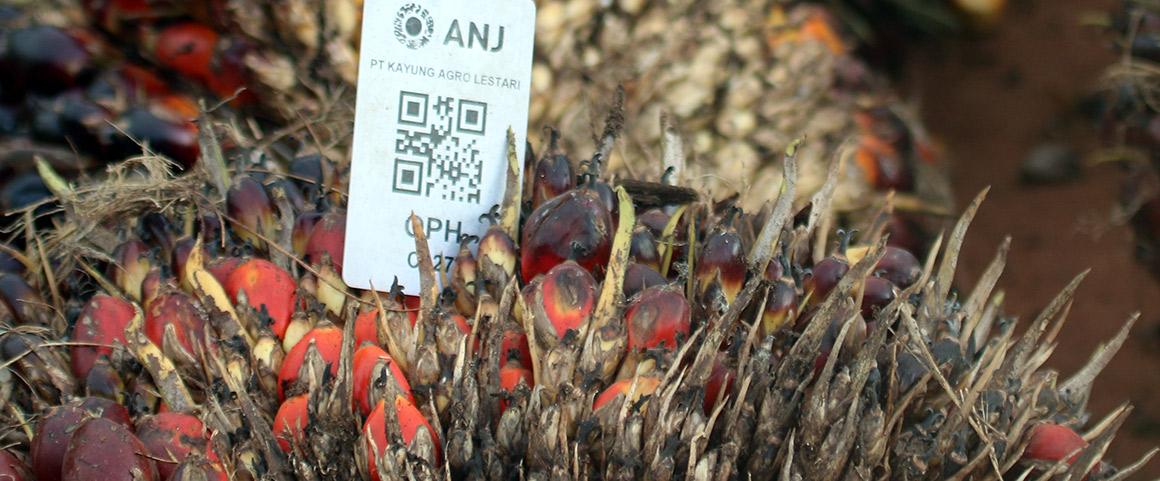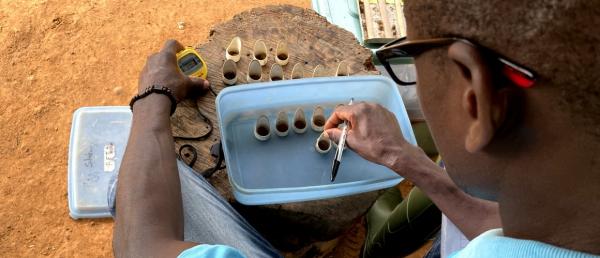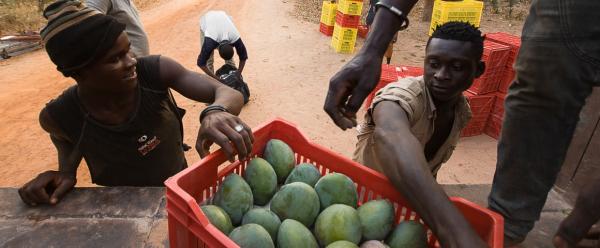Results & impact 16 April 2024
- Home
- CIRAD news
- News
- Oil palm and the circular economy
Oil palm and the circular economy: innovating for the sustainability of the sector

Régimes de palmier à huile ANJ, Indonésie. © Alain Rival, Cirad
The palm oil sector is often in the spotlight, challenged on the social and ecological issues it raises, especially in Southeast Asia. However, for several decades, the agroecological transition has been underway in this sector. CIRAD has successfully assisted medium-sized plantations, from 10 000 to 100 000 ha, in making essential practice changes in terms of sustainability . These partners are actors who are increasingly concerned about sustainable development issues and innovation processes. They contribute to the sustainability and resilience of the sector, which are necessary to combat deforestation in Indonesia.
In particular, since 2014, CIRAD has been engaged in a partnership with the plantation company ANJ (PT Austindo Nusantara Jaya Tbk), which has branches in several regions of Indonesia. The projects developed in common focus on the optimisation of soil fertility management, the rational use of inputs, integrated pest control and, recently, large-scale composting of organic waste.
For every tonne of oil extracted, the palm oil industry has to treat 1 tonne of solid organic waste (bunch stalks) and around 2.5 tonnes of liquid waste (effluents). This waste was a serious environmental problem in the 1980s, but plantations now recycle it as organic fertiliser in their plots. This waste has a high nutrient and organic carbon content, and does not contain any toxic substance. It has beneficial effects on palm production, and some of the chemical fertilisers typically used in plantations are now replaced by these organic amendments.
The ANJ group is committed to improving its sustainability , and has been a member of the Roundtable on Sustainable Palm Oil (RSPO) since 2007. According to George Tahija, Chief Executive of the group, sustainable agriculture is crucial to meeting the Paris Agreement target of limiting global warming to 2°C by 2050 and achieving the UN goal on action to combat climate change (SDG 13). “With the support of CIRAD, our partner in research and development, we identify the scientific data that will improve our sustainability ”, he says.
Recently, a subsidiary of the ANJ group, the Indonesian company PT Sahabat Mewah Makmur (SMM), received the PROPER Emas gold award from the Indonesian Ministry of Environment and Forestry. SMM is the first oil palm plantation to receive this award . Another subsidiary of ANJ, PT Austindo Nusantara Jaya Agro (ANJA), also received the Green PROPER award.
“Granting this award to an oil palm plantation shows that producer country governments are also moving onto the road to sustainability ”, says Alain Rival, CIRAD’s Regional Director for Southeast Asian Island Countries and CIRAD’s correspondent for the palm oil sector. “States, alongside private companies, are key actors in the transformation of the sector: it is states that allocate concessions and decide how these concessions will be used ”.
The research conducted by CIRAD in partnership with private oil palm plantation companies, such as the ANJ group, but also the SIAT group in Africa, pursues several complementary objectives. First, the goal is to create a knowledge network on oil palm cultivation systems. Next, the research teams consolidate this data in the field in diverse agroecological environments. Finally, this knowledge helps to support plantations towards practices that are not only more effective, but also more environmentally friendly. CIRAD thus accompanies plantations in the agroecological transition, with the goal of ensuring better productivity and decent work.
























_c.chabrier.jpg)

